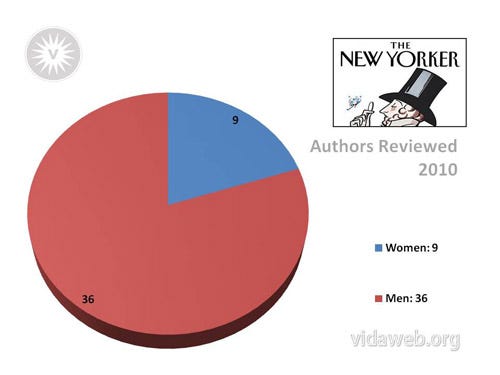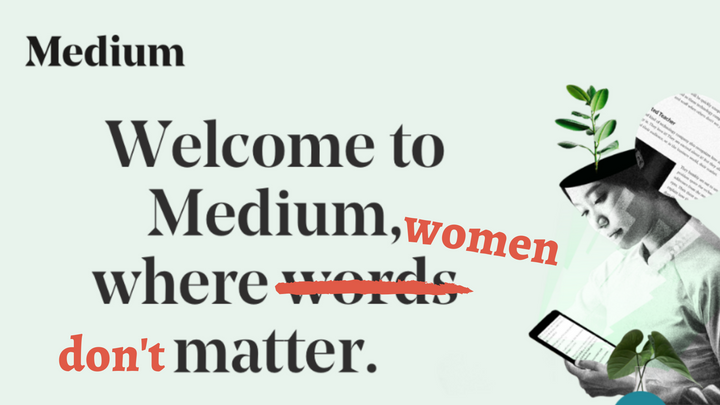I Don’t Read Comments From Men
It’s just not worth it.

L et’s just get this out of the way: I hate social media. There’s no hiding it. Despite the fact that I actually run a social media site, I truly despise it. Nothing gives me more anxiety than social media, and cutting it (mostly) out of my life has been a huge part of managing my anxiety.
I’ve come up with a view tricks over the years to manage the anxiety of the limited social media I still use, one of them being my Stop, Drop, and Roll method:
- Stop reading comments
- Drop your content
- Roll out and move on
Of course, sometimes I do actually want to read the comments. For example, I write a lot about feminist issues involving male violence, sexual assault, and domestic violence. When I put a vulnerable piece out there, I often appreciate reading the comments from women who share harrowing stories about their own experiences. Hearing other women’s experiences is important to me.
"Overall, the research suggests that the average commenter is an uneducated man who hasn’t even read the full article and is just out to boost their own ego."
Sometimes, I’m curious about the conversation my work has started and I’m interested if I can learn anything new from the ideas in the comments. Occasionally, someone will actually change my mind with a well educated and cited comment. I deeply appreciate the people who take the time to do that, and I don’t want to miss those learning moments.
But, even when I break my “don’t read the comments rule,” I have had to set another boundary with myself to keep my sanity: Never read comments from men. Ever.
Any time I break this rule, I instantly regret it. Men never fail to disappoint. There are three main reasons why I’ve found reading comments from men on social media to be a total waste of my time.
1. Men’s voices are overrepresented online anyways
Men already dominate nearly every public sphere — including the internet. A 2014 article in Quartz examined the sex biases of nearly 1 million comments on New York Times articles. Although women make up 44% of the readership of the Times, they only comprised 25% of comments.
There are many proposed reasons why this may be the case. Some have argued that women are bullied and harassed offline. Some say women are in the comments, they just choose to use pseudonyms for privacy. Others disagree, arguing that women choose to avoid the comments sections because they have better things to do than troll. Whatever the reason, the fact is the same: men are dominating the comments sections nearly everywhere.
This is no surprise. Women’s words are underrepresented in nearly every written form of communication. For example, despite the fact that women receive the majority of MFAs, the New York Times bestsellers list is still dominated by men (although it is improving over time). Books by male authors are disproportionately reviewed in every major publication by disproportionately male reviewers.

Men are more likely to be quoted in articles (at a ratio of 3:1), and men make up more than about two-thirds of bylines in publications like The New York Times and The Washington Post. Even Wikipedia has a gender bias, with somewhere between 8.5% and 16% of Wikipedia editors being female. The phenomenon is so prevalent that is has even sparked its own meme: “There are no girls on the internet.”
Male voices are everywhere, and they have no trouble being heard. I read the opinion of probably hundreds of men all day online and, the truth is, I don’t need any more. By refusing to read comments by men, I’m not blocking myself off from the male perspective. I’ll get that from plenty of other sources. Rather, I’m focusing on the perspectives of those who are more often silenced and ignored.
2. Comments from men are condescending, rude, or uninformed
Claire J. Harris recently pointed out the difference in how men and women comment on her articles — specifically how men go out of their way to comment on the life choices of women when it has nothing to do with them.
Men are leading the charge in the comments section, and they are overwhelmingly posting vile, hateful, nonsense. As Caitlin Dewey pointed out in The Washington Post:
“The anthropologist Krystal D’Costa once compared the experience of reading online comments to watching a car crash as it happens — maybe because both are unfortunate, and both can be deeply traumatic.”
This has a real effect on other readers. A 2013 study published in the Journal of Computer‐Mediated Communication found that exposure to “uncivil” blog comments led to increased polarization among readers, especially along religious lines.
Female authors, like myself, are more likely to receive abusive online comments, and abusive comments have a real impact on readers’ perceptions of the author.

More research has found that those who comment on articles are likely to have spent more time on their comment than actually reading the article itself. These commenters are 64% more likely to be men, and 53% likely to only have a high school diploma or less.
Overall, the research suggests that the average commenter is an uneducated man who hasn’t even read the full article and is just out to boost their own ego. Excuse me for skipping that.
3. I don’t care what men think about feminism
Every now and again, I do actually get good, engaged, educated discussion from men in my comments. It’s rare, but it does happen.
But here’s the thing — I don’t care what men think about feminism. With a few exceptions, I write for women. My stories are about sharing women’s experiences. My calls to action are for women to rise up against our oppressors. Women (and girls) are my target audience, and I simply am not here to speak to men.
Will this alienate some readers? Probably.
Does that change anything? No.
I’m tired of shitty male “hot takes” on abortion and what women do with their bodies. I’m tired of “skeptics” who belittle and deny women’s experiences of male violence. I’m tired of “male allies” who continue to disappoint us despite all their woke ally-theater, time and time again.
Of course, I recognize that gaining male allyship can be useful — but there are people who are working on educating men, like The Good Men Project, who make this their focus. I’m not here to educate men. I’m here to speak with women, engage in consciousness-raising together, and limit our reliance on men.
I won’t block or censor men’s comments (if other people want to read their opinions, go for it). But, by refusing to read comments from men on my work, I create a mental space that prioritizes women — and prioritizing women is how I live my feminism.
The generous support of our readers allows 4W to pay our all-female staff and over 50 writers across the globe for original articles and reporting you can’t find anywhere else. Like our work? Become a monthly donor!
Enter your email below to sign in or become a 4W member and join the conversation.
(Already did this? Try refreshing the page!)





Comments